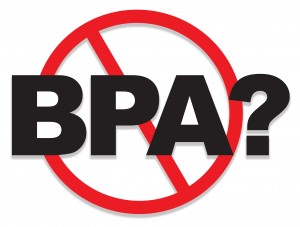Legal Files
Legal Files: Bio-Bottle Breakdowns
In what is being described as the first “greenwashing” lawsuit in the state’s history, California Attorney General Kamala Harris filed a complaint last month against two beverage companies and a plastic bottle manufacturer for deceptively marketing and labeling their packaging as “biodegradable” and “recyclable.” The lawsuit could have far-reaching implications for how beverage companies choose bottle manufacturers and label their products. In the short term, however, it’s likely to have at least two water companies scrambling for replacement bottles to comply with the law.
The complaint named Balance Water, AquaMantra, and ENSO Plastics as defendants and claims that “the advertising and marketing practices of these companies are misleading to California consumers and businesses, and potentially harmful to the environment.” The lawsuit also states that the three companies are in violation of the state’s 2008 environmental law banning the words “biodegradable,” “degradable” or “compostable” on the labels of plastic food and beverage containers.
The lawsuit centers around ENSO Plastics’ specially coated PET bottles used by both Balance Water and AquaMantra. According to ENSO’s website, the bottles contain a microbial additive that is incorporated into PET resin during the manufacturing process. ENSO claims that the additive will enable the bottles to naturally biodegrade within one to five years. The hitch is that the bottles would need to be placed in an environment with high microbial activity, such as a landfill.
The Attorney General’s Office, however, disputes ENSO’s claims that the additive will speed up the process of degradation. The lawsuit states that the claims are false, deceptive, and misleading and further notes that “items containing degradable additives… are considered contaminants by postconsumer plastic recyclers and, where possible, such items are culled out from recyclable plastics.” The Attorney General’s Office fears that consumers – thinking that the bottles will biodegrade – will improperly dispose of the bottles or will try and recycle them and cause problems for commercial recycling companies.
Both AquaMantra and Balance Water have said they will try to comply with the law.
Legal Files II: FDA had BPA Deadline
In a court settlement that may have wide-ranging implications for the beverage industry, the Food and Drug Administration (FDA) has agreed to decide whether to ban bisphenol A (BPA), a controversial plastic and resin ingredient commonly used to line plastic bottles and metal cans. The settlement resolves a lawsuit filed against the agency by the Natural Resources Defense Council (NRDC), an environmental action group, and requires the FDA to make a final decision on BPA by March 31, 2012.

In January 2010, the FDA announced that it had concerns about the potential health effects of BPA. The agency concluded that it would “support changes in food can linings and manufacturing to replace BPA or minimize BPA levels.”
However, the FDA never made a direct ruling on whether to prohibit the chemical for use in food and beverage containers. After 18 months with no direct response to the petition or clear action regarding BPA, the NRDC decided to file a lawsuit, which led to yesterday’s ruling. The agreement was approved by U.S. District Judge Barbara S. Jones of the Southern District of New York who said the FDA must issue a final decision, not a “tentative response.”
“Every day, millions of American consumers are exposed to this dangerous chemical, commonly used in packaging for canned foods, beverages and even baby formula,” said Dr. Sarah Janssen, a senior scientist in the Environment and Public Health program at NRDC. “The FDA has an obligation to protect us from toxic food additives. As thousands of studies have already shown, BPA is a dangerous chemical that has no place in the food chain. Its use in food and beverage containers needs to be banned.”
While many new beverage companies have begun to utilize BPA-free containers, some of the largest drink manufacturers have held firm on its use. On its website, Coca-Cola noted that “the clear scientific consensus is that there is no risk to the public from the miniscule amounts of BPA found in Coca-Cola or other beverage cans.” Coca-Cola continues to use BPA to line its cans despite a request from a number of its shareholders to prepare a report that detailed the company’s efforts to find an alternative to the chemical. Coke stated that 75 percent of its shareholders voted against the proposal for a report.


Receive your free magazine!
Join thousands of other food and beverage professionals who utilize BevNET Magazine to stay up-to-date on current trends and news within the food and beverage world.
Receive your free copy of the magazine 6x per year in digital or print and utilize insights on consumer behavior, brand growth, category volume, and trend forecasting.
Subscribe